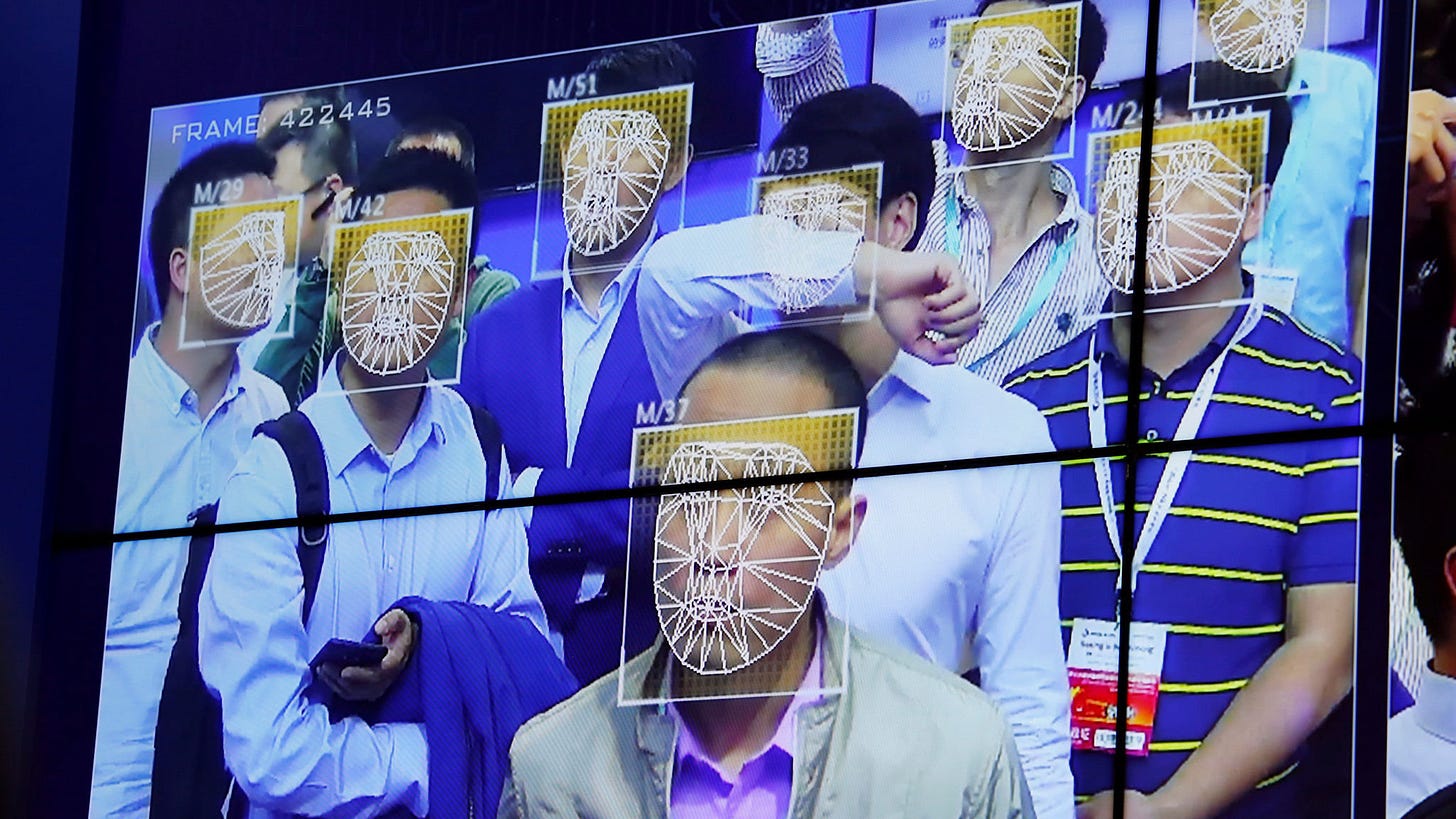China Urges United Nations to Regulate Military AI; US Bans More Chinese AI Companies; Text-to-Face Synthesis
China’s AI news in the week of December 19, 2021
China Calls for United Nation-Led Regulation on Military AI
“Autonomous weaponry is the third revolution in warfare, following gunpowder and nuclear arms. Its evolution from land mines to guided missiles was just a prelude to AI-enabled true autonomy — the full engagement of killing: searching for, deciding to engage, and obliterating another human life, completely without human involvement.”
The above excerpt from Kaifu Lee's new book AI 2041 sheds a light on the existential danger of autonomous weaponry. Last week, China called for a global initiative on regulating the military applications of AI at a key United Nation meeting held in Geneva.
Chinese delegates submitted a position paper on the regulation of AI military applications, the first of its type document proposed at the Convention on Certain Conventional Weapons. The conference seeks to prohibit or restrict the use of certain conventional weapons which are considered excessively injurious or whose effects are indiscriminate.
The position paper underscored profound impacts and potential risks AI military applications could give rise to in aspects of strategic security, governing rules, and ethics, followed by a number of nonspecific proposed solutions. For example, China strongly opposes any military acts that invade sovereignty and homeland security with AI advantages. Research and development on AI military technologies should be restricted. Every AI weapon decision must be under the control of humans.
Like other superpowers Russia, the United States, and the United Kingdom, China is not supportive of a full prohibition of autonomous weapons. Instead, the country suggests a widely-recognized governing protocol and standard on AI military.
Major Chinese AI Companies Join SenseTime on US Investment Blacklist
U.S. persons are barred from investing in eight Chinese technology companies, including three major facial recognition developers and commercial drone giant DJI, following a similar sanction against SenseTime a week ago.
The U.S. Department of Treasury added Megvii, CloudWalk, YiTu Tech, along with DJI and four other companies, to the notorious investment blacklist over an accusation of "biometric surveillance and tracking of ethnic and religious minorities in China." That means existing investors of blacklisted companies must withdraw their stakes and prospective investors are prohibited to purchase new stakes.
Megvii, the Beijing-based facial tech developer now valued at RMB30 billion, said the U.S. allegations are groundless and the investment ban will not affect the company's operation. CloudWalk, an AI enterprise incubated from the Chinese Academy of Sciences, said the company has no foreign investors. Both companies have received the green light to go public on Shanghai's STAR market.
SenseTime last week announced to postpone its highly-anticipated initial public offering on the Hong Kong Stock Exchange. However, the company is said to push forward its IPO and have secured $500 million in cornerstone investments.
The latest investment ban is not the first U.S. crackdown on China’s AI forces. Known as four AI dragons in China, Megvii, CloudWalk, and YiTu Tech, along with SenseTime, were placed on an entity list two years ago that prohibits any U.S. suppliers to sell their technology or products to blacklisted companies without a government license.
Text-to-Face Synthesis Through Multiple Captions
You were at the store and saw a robber loot and fled. The police then arrived on the scene and asked you to describe in writing what the criminal looks like. "The suspect was a white male and wore a mustache. He looked young, perhaps between 20 and 25 years of age..."
This week a team of researchers from the China Academy of Sciences Institute of Automation and the University of Chinese Academy of Sciences proposed a text-to-face synthesis algorithm that turns multiple captions as input into a highly semantically related face image. Such technology could be applied to human-computer interaction, art generation, and the above-mentioned criminal investigation based on the victim’s descriptions.
Text-to-face synthesis is more challenging than the broader text-to-image synthesis because human faces have more complicated attributes, identity-related features, and fine-grained textures, and there is no face dataset with accurate text descriptions. Existing face synthesis techniques are bridging the gap between a face and one description, which is not enough to depict detailed features.
Researchers adopted a three-stage generative adversarial network framework, with randomly sampled Gaussian noise as input, and sentence features from different texts are embedded into the network through the SFIM module. In the second and third stages of the network, the AMC module is introduced to combine different texts. The described word features and the intermediate image features are fused through the attention mechanism to generate more detailed features. In order to better learn attribute information in the text, the team designed an attribute classifier and introduced attribute classification loss to optimize network parameters.
The team also created a labeled dataset that selects 15,010 frontal images from the CelebAMask-HQ dataset. Each image in CelebAText-HQ is manually annotated with 10 text descriptions, and each description consists of 6∼44 words.
Investment News:
Niutron, an electric vehicle company founded by former Baidu CTO and NIU Technologies founder Yinan Li, has raised $500 million in its Series A funding round. Founded in 2018, the Beijing-based company will roll out one electric vehicle model and one extended-range electric vehicle model in 2022.
METiS Therapeutics, a US-China biotechnology company, has raised $86 million in its Series A financing led by PICC PE and China Life and joined by Sequoia Capital China, Lightspeed, 5Y Capital, FreeS Fund, and CMBI Zhaoxin Wuji Fund. The company aims to drive best-in-class therapies in a wide range of disease areas by integrating drug discovery and delivery with AI, machine learning, and quantum simulation.
Qianhai Yueshi, a developer of cold chain technology powered by AI, has raised RMB390 million ($61.3 million) in its Series A financing backed by Sinovation Ventures. Founded in 2017, the company provides services like cold chain warehousing management, logistics management, transaction management, and information platform.






